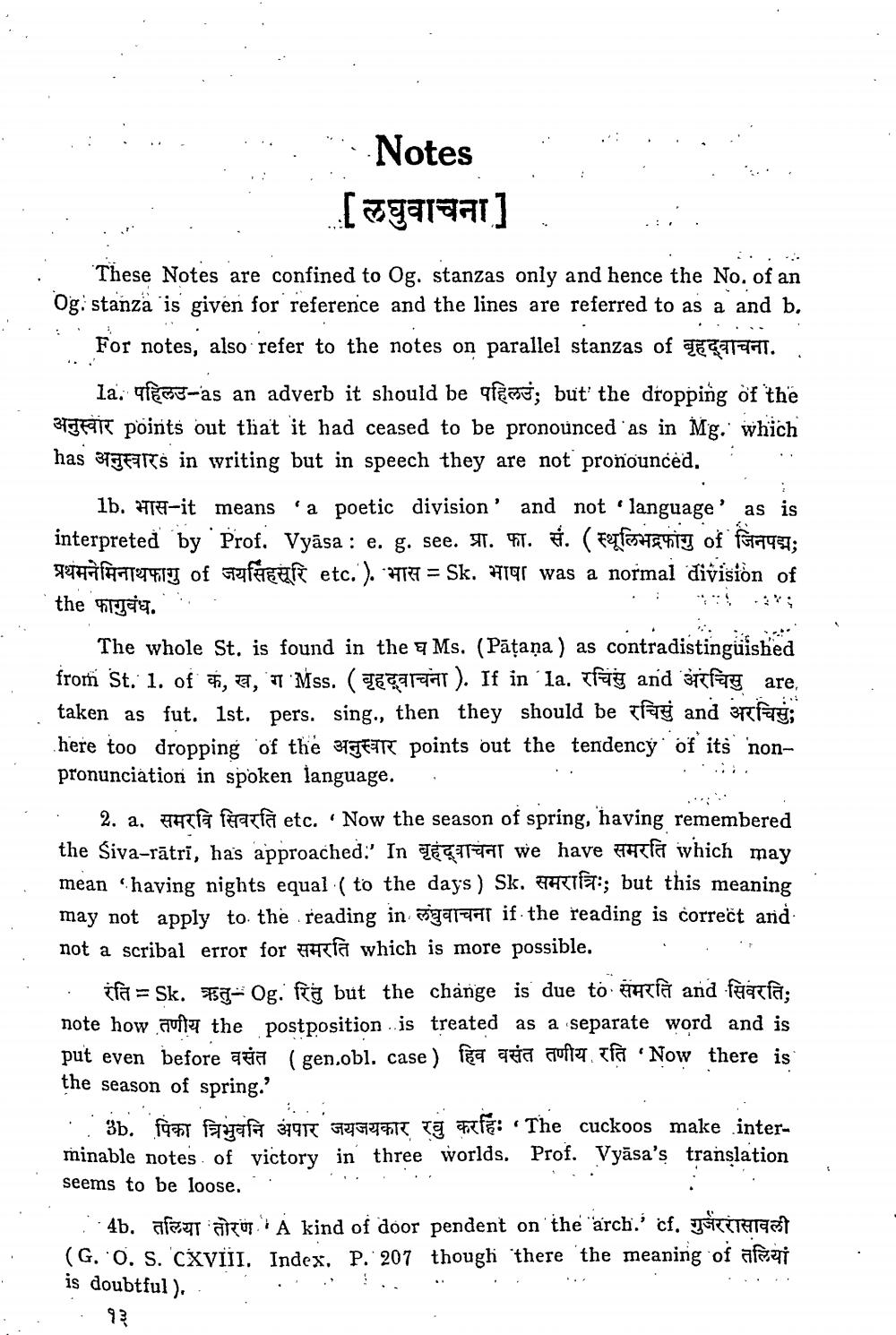________________
.
..". Notes
[zgargar].
:
These Notes are confined to Og. stanzas only and hence the No. of an Og. stanza is given for reference and the lines are referred to as a and b.
For notes, also refer to the notes on parallel stanzas of gegarFT.
la: Wes-as an adverb it should be afect; but the dropping of thë STEFTIR points out that it had ceased to be pronounced as in Mg, which has 34TECTS in writing but in speech they are not pronounced. . "
1b. HH-it means a poetic division' and not language' as is interpreted by Prof. Vyāsa : e. g. see. FT. 97. . ( FYTESHEVII of f497924; प्रथमनेमिनाथफागु of जयसिंहसूरि etc.). भास = Sk. भाषा was a normal division of the tyčia.
The whole St. is found in the a Ms. (Pāțaņa) as contradistinguished from St. 1. of क, ख, ग Mss. (बृहद्वाचना). If in la. रचिसु and अरचिसु are, taken as fut. ist. pers. sing., then they should be that and Breize; here too dropping of the Stear points out the tendency of its 'nonpronunciation in spoken language. . . 2. a. ante ferarla etc. Now the season of spring, having remembered the Siva-rātri, has approached:' In TÉTETTAT we have refa which may mean "having nights equal ( to the days ) Sk. AHETT:; but this meaning may not apply to the reading in asgaiaat if the reading is correct and not a scribal error for hela which is more possible. . . . . रंति = Sk. ऋतु-0g. रितु but the change is due to समरति and सिवरति; note how quite the postposition is treated as a separate word and is put even before वसंत (gen.obl. case) हिव वसंत तणीय रति — Now there is the season of spring. - 3b. f t fayah 39 52271 og starfa: The cuckoos make interminable notes of victory in three worlds. Prof. Vyāsa's translation seems to be loose..
4b. तलिया तोरण । A kind of door pendent on the arch.' cf. गुर्जररासावली (G. '0. S. CXVIII. Index. P. 207 though there the meaning of afegi is doubtful), . . . . . . .




